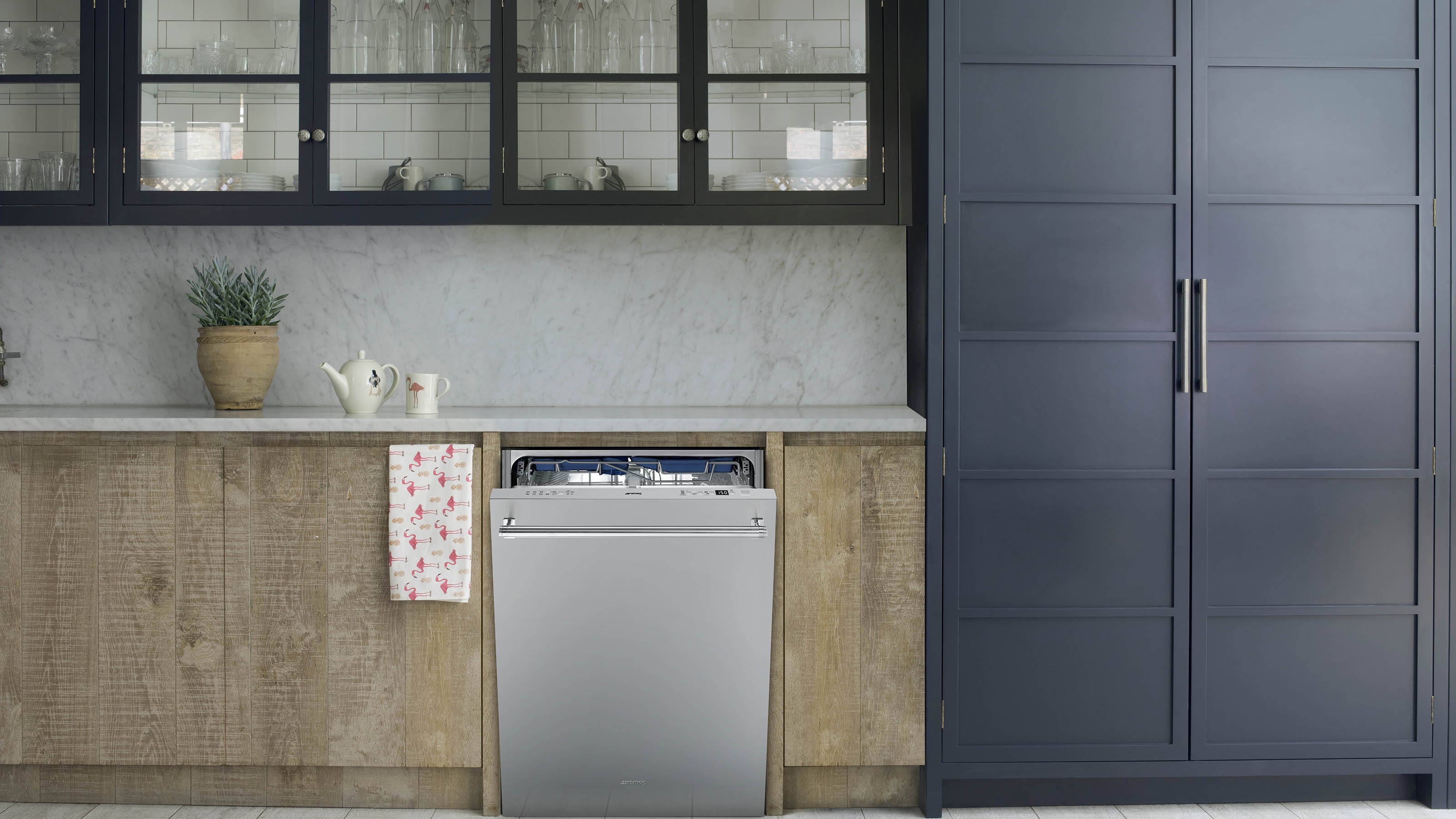

Going down the laundry aisle, you might've asked yourself: 'What does dishwasher salt do?' And, 'Am I wasting my hard-earned dollars on these glorified granules?' At first glance, it might look like the table or sea salt you season your food with, but this clever cleaning product is so much more.
The truth is, even the best dishwashers need a little help now and again, and this granular product will help keep it washing dishes for years to come. Even in economic hardships, dishwashing vs. handwashing is still cheaper and uses less water, so it's worth looking after your appliance to save money (and time standing at the sink).
If you live in a hard water area, it's beneficial to use it in your appliance (and much cheaper than installing a water softener). But do you know the reasons why? If not, along with the experts, we'll 'dish' out the knowledge on what dishwasher salt actually is, how much to serve your washer and when to replace the salt.
We'll also dive into why the area you live in can determine whether you need to pop this product in your basket, alongside the best dishwasher tablets.
What is dishwasher salt?
'The salt for your dishwasher is essentially course-grained sodium chloride – it helps to soften the hard water that’s tough on your dishes and prevents the dishwasher’s softener unit from clogging up,' explains Lara Brittain, Currys
'Most modern dishwashers will have an indicator light to remind you, but if not, there will be a float indicator in the drawer. It might be hard to see through, so you may want to set a reminder in your calendar once a month to fill it up.'
'You can find dishwasher salt in most supermarkets. Don’t just go reaching for the regular table salt to top it up though, because that will corrode the pipes and get clogged, which will break the machine!'
It's worth noting that if you are looking for planet-friendly cleaning products, you can get buy eco-friendly dishwasher tablets and 100% natural dishwashing salt from the dead sea, available from Aromasong on Amazon.
What does salt do in a dishwasher?
'Dishwasher salt refreshes the dishwasher's water softening system. A dishwasher needs soft water so glasses come out shiny, clean, and free from water spots,' says Koulla Henry, business unit head, dishwashing, BSH Home Appliances.
'Hard water contains high levels of calcium carbonate, also known as lime. Using hard water in a dishwasher can lead to limescale build-up on utensils and can potentially damage the appliance. That's why it's crucial to soften water that has a hardness above a certain threshold.'
Yes, you can remove watermarks post-wash or clean a dishwasher using a DIYing own limescale remover, but then you're just adding to your workload and might as well hand wash with the best washing-up liquid.
If you do want to know whether you've got soft or hard water, you can either buy single-use water hardness test strips or a digital hard water monitor, both available on Amazon. You might also find this information on your water bill, or your supplier might be able to tell you.
For example, in the United Kingdom, you can refer to this map on Aqua Cure. Or, if you live in the USA, refer to this infographic on Homewater 101.
Where does dishwasher salt go?
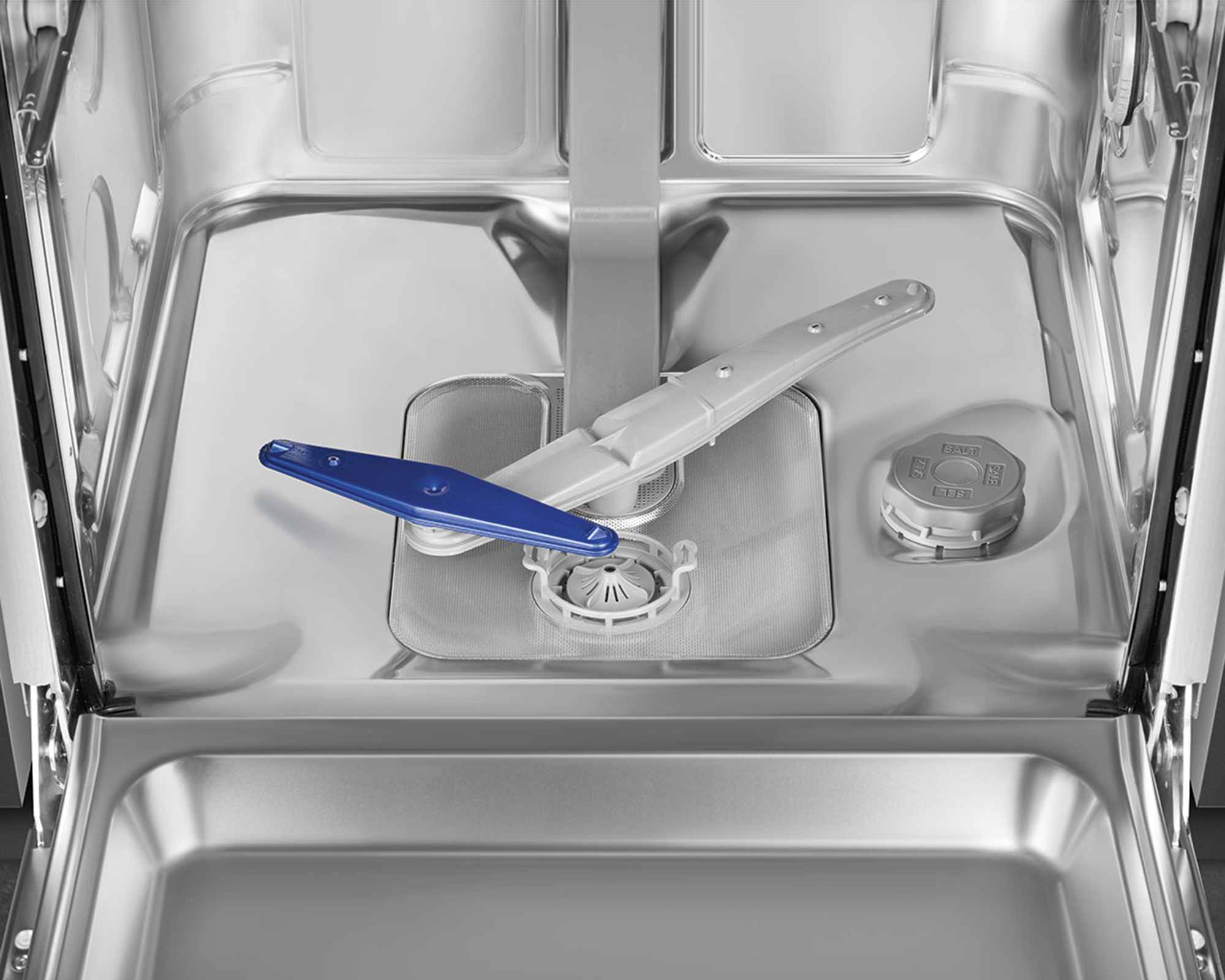
It’s easiest to top up with dishwasher salt simply when your machine is empty, so after unpacking a clean load of dishes is the most suitable time,' says Burrel.
'Dishwasher salt needs to be added to an extra filter in your dishwasher. This is usually found in the base of the washing unit, as opposed to the door, but make sure to check your manufacturer's guide or instruction manual to make sure. To add dishwasher salt, open the cap and pour the salt in. Ensure you check the packaging to find out how much salt you will need, and it may help to use a measuring cup, and a funnel, to both measure out and supply the salt to your dishwasher.'
'If the reservoir for the salt is full of water, you can still pour the salt in as it will displace what is in there. If you don’t plan to run the machine immediately after refilling, it’s recommended to wipe out displaced water from the machine with a paper towel.'
'If you run the machine for the first time make sure to fill the salt reservoir with water - in order to regenerate the softener unit salt must be in a solution. Always follow the instructions from the manual provided by the machine manufacturer. Once poured, replace the cap, ensuring it is closed tightly and it should be ready to use again. Most water softeners will have an adjustable setting for water hardness, so make sure this is adjusted correctly to make sure that you get the perfect clean. Remember to top up your dishwasher salt regularly if you notice it’s running low.'
On the flip side, if you do overdo it with the salt, you may experience a number of problems including your dishwasher not draining properly, a bad-smelling dishwasher or you're noticing that the dishwasher isn't filling with water. In which case, you might have to get your hands dirty and learn how to clean a dishwasher filter.
Tim Dunphy, water expert, Leaf Home Water Solutions also cautions that 'Not all dishwashers have a built-in water softener or an area to place salt in. If you try to add salt without these components, the salt won’t help. It can actually hinder washing performance and cause issues with your appliance. The best solution is a water softener that addresses the whole home.'
How much dishwasher salt should I use?
Before you go and tip the whole bag of dishwasher salt into your best slimline dishwasher: stop. Most of the time your machine will signal when it needs a top-up of the saline stuff. But, to make sure you don't overfill your machine, we got a proper answer from the pros, so you don't make one of many dishwasher mistakes.
'Ensure you check the packaging to find out how much salt you will need.' advises Lorna Burrel, brand manager, Finish UK.
'It may help to use a measuring cup and a funnel to both measure out and supply the salt to your dishwasher. We recommend leaving the salt level approximately 1cm under the lip of where the cap will screw back on so you don’t overfill your machine and potentially waste your product.'
Can you use normal salt instead of dishwasher salt?
'Dishwasher salt, like table salt, consists of sodium chloride,' says Henry.
'However, dishwasher salt comes in coarse granules to prevent clogging the dishwasher salt tank while table salt is finely ground. Though it might be tempting in a pinch, do not use table salt in your dishwasher. Doing so could damage the water softening system.'
Do I need to use salt and rinse aid in my dishwasher?
'Yes, salt is required in every dishwasher even if living in a soft water area, however, when the water is softer it will take longer before needing to replenish the salt.' says Anna Batten, product manager, Smeg
'Salt is required to protect your machine from limescale and assists with the water softening process within the machine. Rinse aid assists the drying of the crockery meaning your crockery is spot and streak free.'
Do I need to add salt to my dishwasher if my water is soft?
'We would still recommend adding salt to a dishwasher, even in a soft water area,' says Tom Akers, product sales trainer at Miele GB.
'This is because soft water still contains very small levels of the components that form limescale. Over time these can cause limescale to build up and cause adverse effects such as poor overall performance, or even cloudy glassware. Adding salt eliminates these possibilities and ensures optimal performance for the lifetime of the dishwasher.'
Join our newsletter
Get small space home decor ideas, celeb inspiration, DIY tips and more, straight to your inbox!

Hi, I'm the former acting head ecommerce editor at Real Homes. Prior to working for the Future plc family, I've worked on a number of consumer events including the Ideal Home Show, Grand Designs Live, and Good Homes Magazine. With a first class degree from Keele University, and a plethora of experience in digital marketing, editorial, and social media, I have an eye for what should be in your shopping basket and have gone through the internal customer advisor accreditation process.
-
 How to clean a juicer — get yourself out of a sticky sitch with our 5-step guide
How to clean a juicer — get yourself out of a sticky sitch with our 5-step guideCleaning a juicer to get rid of carrot, apple, and orange bits couldn't be easier with this guide that'll get it gleaming in 10 minutes
By Christina Chrysostomou
-
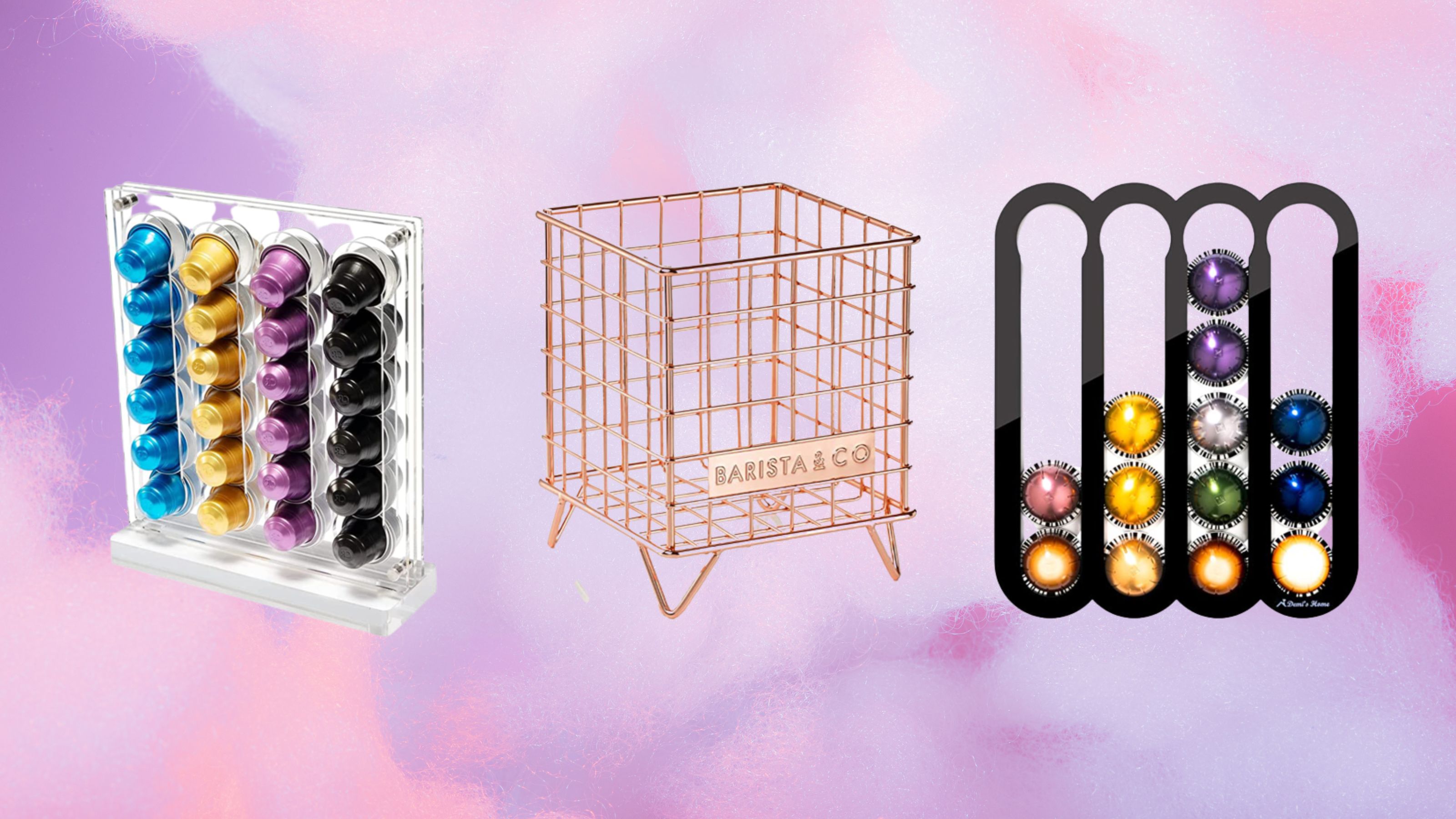 9 genius on-trend coffee pod storage buys to keep your countertop tidy
9 genius on-trend coffee pod storage buys to keep your countertop tidyAchieve that #CoffeeTok aesthetic in an instant with these coffee pod storage buys that will keep your countertops clutter free
By Christina Chrysostomou
-
 6 items you should never store under the kitchen sink, according to a professional organizer
6 items you should never store under the kitchen sink, according to a professional organizerA professional organizer let us know what doesn't belong under the kitchen sink, and where to put these common items instead.
By Kate Santos
-
 How to organize a kitchen, in just 7 steps
How to organize a kitchen, in just 7 stepsWe show you how to organize your kitchen for long-term success, no matter how small your cooking space...
By Kaitlyn McInnis
-
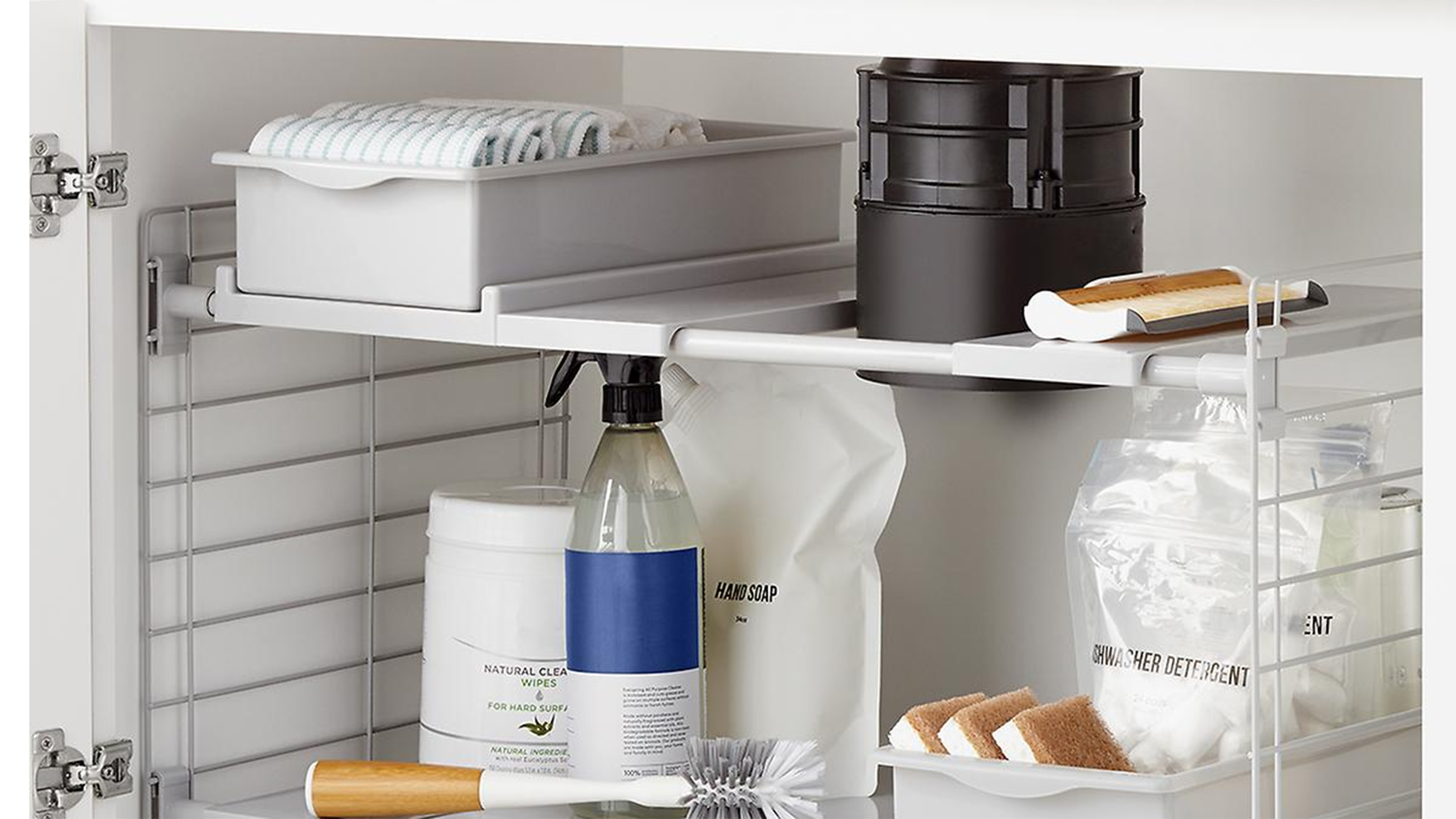 14 ways to organize that nightmare space under the kitchen sink, according to experts
14 ways to organize that nightmare space under the kitchen sink, according to expertsWondering how to organize under the kitchen sink? Decluttering experts share their top tips for neat and tidy storage.
By Christina Chrysostomou
-
 How to clean copper: 9 ways to restore shine to pans, sinks, and jewelry naturally
How to clean copper: 9 ways to restore shine to pans, sinks, and jewelry naturallyLearn how to clean copper using ingredients already in your kitchen
By Anna Cottrell
-
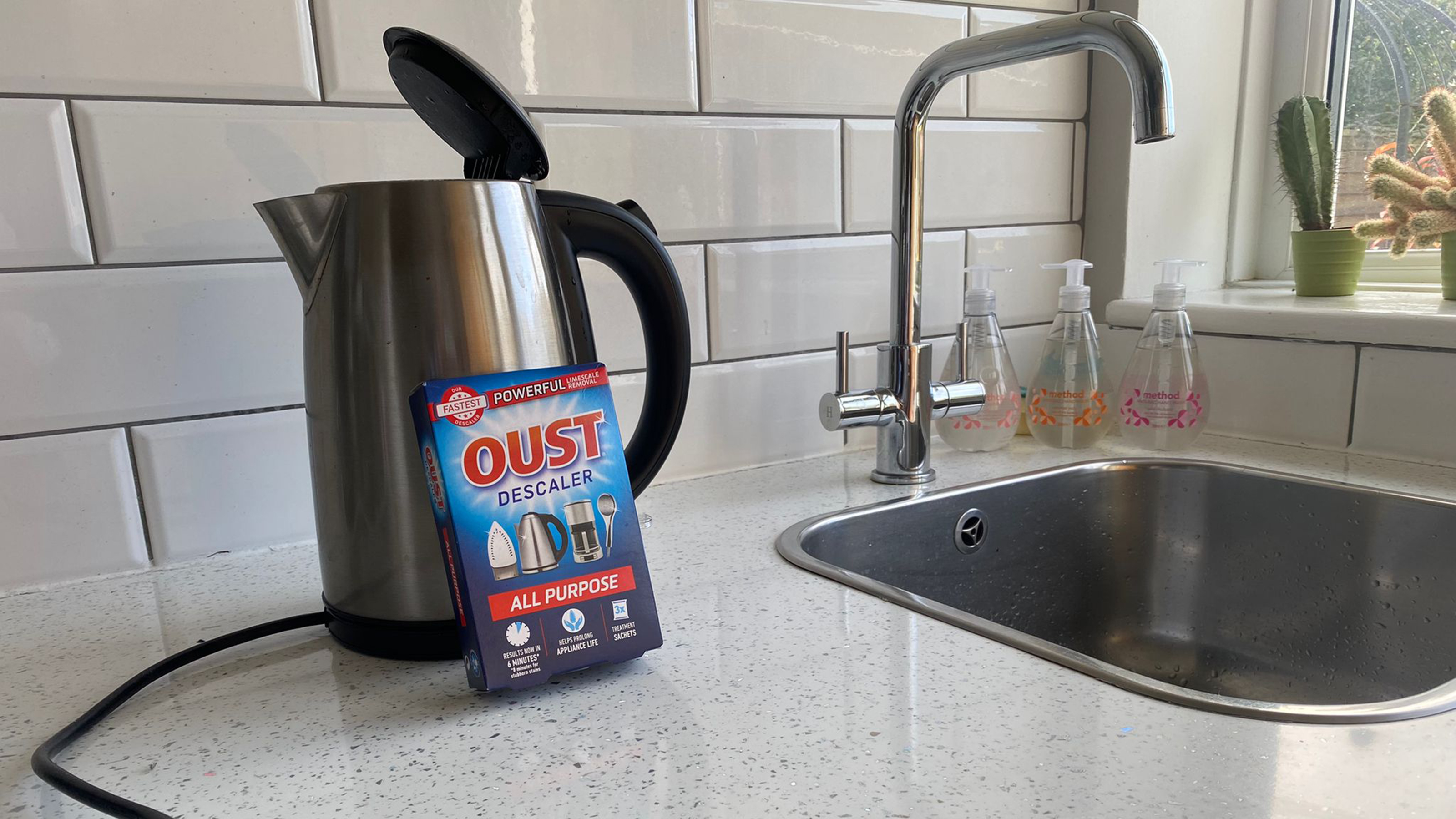 How to clean an electric kettle using a descaling solution, plus 6 eco-friendly cleaning hacks
How to clean an electric kettle using a descaling solution, plus 6 eco-friendly cleaning hacksThis is how to clean an electric kettle properly. Descale yours using natural ingredients like vinegar for quick results to keep it functioning and prolong its lifespan
By Christina Chrysostomou
-
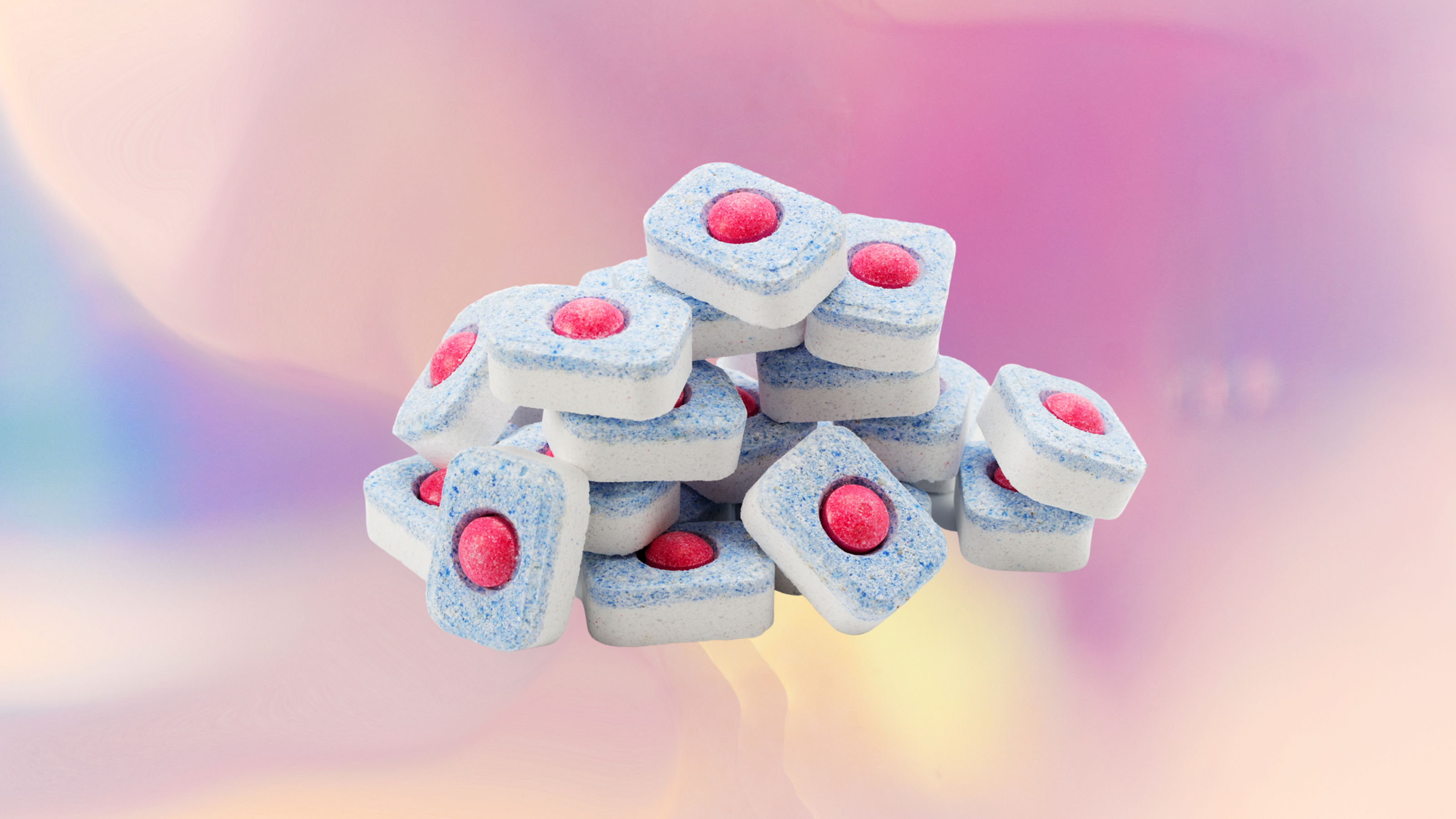 Dishwasher tablet hacks: 15 money-saving ways to clean with dish tabs
Dishwasher tablet hacks: 15 money-saving ways to clean with dish tabsBought too many tabs? These dishwasher tablet hacks are handy for when you've got a glut of cleaning capsules to hand
By Christina Chrysostomou